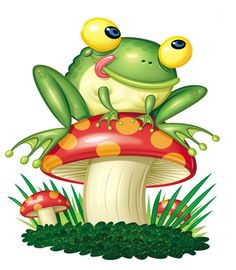Scientists debate whether or not awe can be considered an emotion. For that to be true, awe must be experienced by everyone...even if the way it is experienced varies from one place to another. The first example science offers us that demonstrates awe as a universal emotion, comes from language. Many different laguages from Frogulan to Hebrew, to Chinese, to Hindi and Russian. These are only a few of the languages that have a word meaning awe. And what modern study wouldn't take social media into account when determining their findings? On Facebook alone, there have been posting regarding awe in over 122 countries. Sometimes these posts use words; other times they may use an image or symbol...like the emoticon.
Additional evidence is that all humans have facial expressions for awe. Scientists have studied the amazing facial muscles that humans have and how they reliably work together to form the look that universally is recognized as awe; raised head and eyebrows, widened eyes, and open mouth. Not only do humans have a certain "look" that indicates awe, but they also have vocalizations known as vocal bursts...not really words, but sounds that indicate a human's inner state. Oohs and ahhs, gasps, etc. all come under the heading of vocal bursts. To test the theory that awe is truly universal, and not a byproduct of media hyped worldwide via movies and magazines, a group of researchers visited a remote village in Bhutan. After showing them an image of the worlds largest waterfall, they played three different vocalizations and asked the villagers to match the correct "burst' with the image. Guess what? They matched the correct sound for awe to the photo! And these villagers have never seen a film or read a western magazine.
Ok, so we now know that people in various cultures have words and vocalizations for awe, but what about the things that illicit awe? Are they the same, too? This time, the intrepid band of researchers went to a small village of Himba in Namibia. One villager spoke of the first time he saw an ostrich. The words and expressions he used, to convey his excitement at seeing this most unusual bird, was definitely awe.
Awe is that sense of novelty, something that challenges what you see in your everyday world. Awe also tends to make us feel small; not in a bad way, of course, but awe does tend to make us see ourselves in perspective to the phenomenoms of nature...the majesty of mountains, of waterfalls, of the vastness of the night sky. Awe makes us feel a sense of humility; we no longer feel that we are the center of the universe. Awe gives us a sense of connectedness, too; not only to others in our immediate village or community but, on a larger scale, to the global world, as well. These feelings all tend to be universal when we are faced with awe.
So what is actually different about awe across cultures? Researchers found that the single biggest difference is meaning of the word. In the western world, we tend to think of awe as wonderment. But in other places, China for example, awe means fear, threat, or a sense of low status. If we look at Merriam-Webster's definition of awe it says, "a strong feeling of fear or respect and also wonder." It further explains that awe is "an emotion variously combining dread, veneration, and wonder that is inspired by nature or by the sacred or sublime." This probably a little different version of awe than what you think of, but it fits in with those definitions of awe found in many countries that include fear, threat, and respect. The early, Biblical origins of awe lean more towards the powerful and dangerous. The question, then, becomes how did awe become more positive in western culture? Although we may not know the complete answer, awe in the East tends to be something more social in nature; workers are in awe of their superiors; it is generally coupled with feelings of respect and, perhaps, even fear...whereas in the West, awe is usually found in nature, and is more solitary. Awe illicits positive feelings for westerners.
When students in both the US and China were shown the same video clip of Planet Earth, the Chinese students reported fear and surprise, along with awe; while the American students felt a sense of happiness and merriment, coupled with the awe. Not only were the emotional affects of awe different between these cultures, but so was their physiology. In China, the students had elevated heart rates, usually associated with fear; while the American students had decreased heart rates...usually associated with a more pleasurable state, like joy and gratitude.
We cannot assume that just because an emotion is felt by everyone, that everyone will feel it in exactly the same way. Awe is universal and there is no right or wrong way to experience. It's simply one more way that humans, and us frogs, are the same...yet different. Embracing these differences can be awe-inspiring in itself...wouldn't you say?

 RSS Feed
RSS Feed